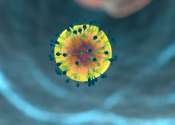Engineered cells successfully treat cardiovascular and pulmonary disease
Scientists at UC San Francisco have shown that gene-edited cellular therapeutics can be used to successfully treat cardiovascular and pulmonary diseases, potentially paving the way for developing less expensive cellular therapies ...
Jul 6, 2021
0
138








